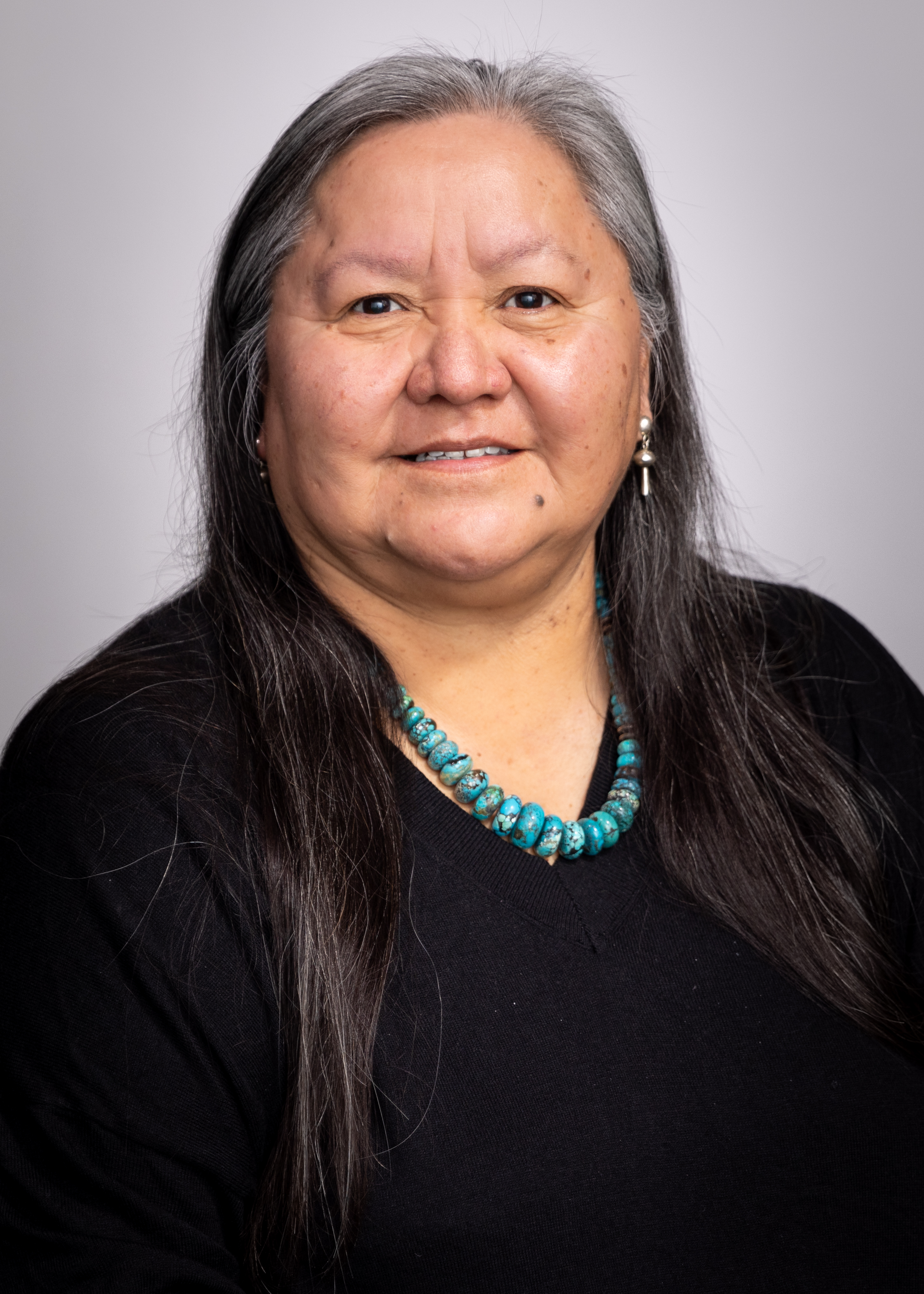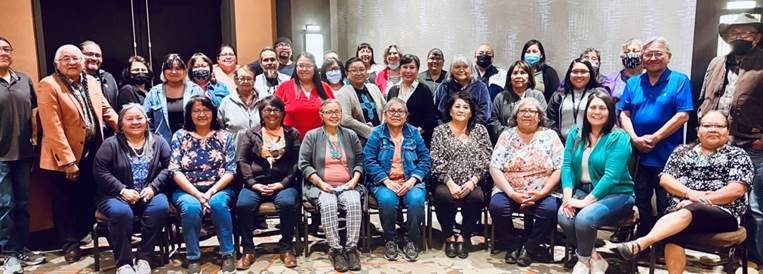The Family Listening Program (FLP) connects young people in tribal communities with their elders in ways that empower them to live their best lives – and it’s done so for more than 20 years. Lorenda Belone, PhD, MPH, professor in The University of New Mexico’s College of Population Health (COPH) had an integral role in developing the FLP available for families in Northern New Mexico. Now young adults who previously participated in the program as children head to college as leaders in their communities. The story of the Family Listening Program is one that demonstrates the power of collaborative interventions rooted in cultural understanding.
Integral to the program's success is the collaboration with Tribal research teams and community partners. These teams actively contribute to and shape the research process as part of the team’s community-based participatory research (CBPR) approach. This approach ensures cultural relevance and community ownership, fostering intervention sustainability beyond the research grants. Belone highlighted that incorporating the voices of the community in the research process is non-negotiable. It's not about studying the community; it's about working with them to identify their needs and co-creating solutions.

With CBPR, community partners are conducting the research; it's not UNM conducting the research ‘on’ them. They have been trained as Tribal Research Teams and they run their own programs.
It all began in 2000 when Belone and Nina Wallerstein, DrPH, distinguished professor in the COPH, worked together on a study with the Centers for Disease Control and Prevention (CDC) that identified the need for better communication and cultural sharing between elders and youth in Native communities. Belone and her colleagues, including Rebecca Rae, MCRP/MWR, research lecturer in the COPH, worked with Native communities to develop and customize a Navajo, Pueblo, and Apache version of an existing program called “Listening to Each Other.” This evolved into the Family Listening Program.
Funded by the National Institutes of Minority Health and Health Disparities (NIMHD) in 2020, the Family Listening Program is now focused on dissemination and implementation across six Tribal communities: Nahata Dziil on the Navajo Nation in Arizona, Torreon on the Navajo Nation, Santa Ana Pueblo, Jemez Pueblo, Ramah on the Navajo Nation, and the Mescalero Apache Reservation.
At its core, the program addresses multifaceted issues through a lens of implementation science that is guided by Prajakta Adsul, MBBS, MPH, PhD. Belone outlined three primary goals:
Goal 1. To meet with tribal leaders in the new communities and to assess whether the program would meet their needs, interests, and goals.
Goal 2. To adjust the methods used for partnering with the communities to best fit their cultural dynamics, interests, and goals.
Goal 3. To begin using the FLP program with families in those tribal communities and continually evaluate the ways in which the FLP program is being implemented in those communities to make sure it’s addressing those communities’ self-identified needs and goals, with hopes that if it works, they’ll continue using it as long as they want to.
The impact of the FLP is evident in the positive transformations within participating communities. Belone shared examples of students who, after engaging with the program during their formative years, have emerged as leaders in high schools and pursued college education. The program's influence extends beyond research with communities creatively incorporating its principles into various initiatives.
Despite the challenges of obtaining consistent research funding, the communities have demonstrated resilience, sustaining the program's positive impact. The stories of success witnessed within these communities are the greatest validation. It goes beyond academic achievements and has empowered individuals to take charge of their futures and foster a sense of pride in their cultural identity.
This program is so important, and even without research dollars, the communities in between research grants have sustained the programs because they've seen the positives. One community created a whole program around making sure that the staff is fully supported in between programs and has developed prevention programs.
Belone’s vision for the future is a broader dissemination of the FLP. The goal is to collaborate with organizations such as the National Indian Child Welfare Association (NICWA) and Substance Abuse and Mental Health Services Administration (SAMHSA) for a national rollout. Additionally, there may be potential for international outreach, as Belone is exploring opportunities to share the program's success on a global scale. The hope is to inspire similar initiatives globally, creating a network of support for communities facing unique challenges.
Our model is not limited to Tribal communities; it's a boilerplate for communities everywhere. Tribal Research Teams will eventually become the coaches. Really that's what implementation science is, and I think that's why we've had recent requests to share this work.
In recognition of the program's significance, Belone and her colleagues have been invited to present at various conferences nationally and internationally, amplifying the impact of their work. This month they presented at the 16th Annual Conference on the Science of Dissemination and Implementation in Health and have been selected as one of four Best of Show. The journey of the Family Listening Program stands as a testament to the power of community-driven interventions and the potential for positive transformation in Native American communities.
As the program continues to evolve, Belone's dedication to community service through research has not only led to the development of an evidence-based program but has empowered communities to take ownership of their well-being. The Family Listening Program serves as a model for future initiatives, demonstrating the transformative potential of research when driven by a genuine partnership between researchers and the communities they serve. The UNM team includes: Rebecca Rae, Prajakta Adsul, Beverly Gorman, Vincent Werito, Nina Wallerstein, Vanessa Garcia, & Kyle White.
